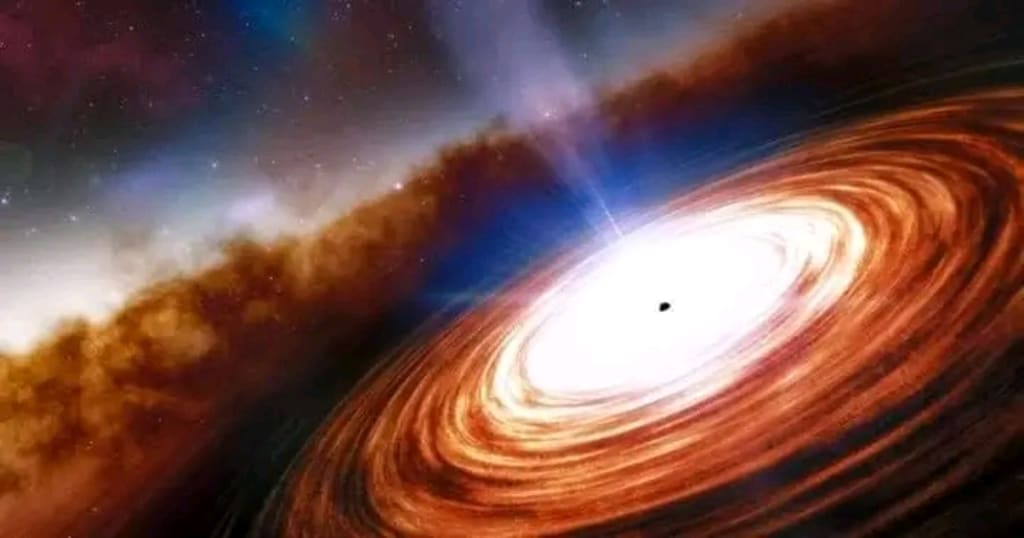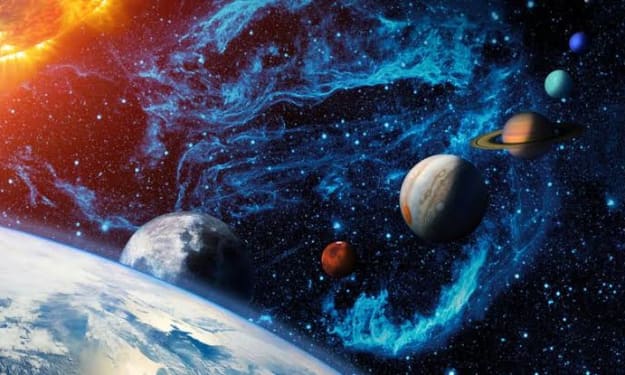How Will Our Universe End? Big Crunch Theory
Cosmic Convergence and the Enigma of the Universe's Fate

The concept of the Big Bang has become widely known, and the conclusion of the "Big Bang Theory" TV series has left many fans feeling melancholic. However, my focus here is on the actual cosmic event that initiated everything. While the majority are familiar with the idea of the Big Bang, there exists another concept known as the Big Crunch, which is distinct and captivating in its own right. This is not a reference to a confectionary treat, but rather a theoretical cosmic phenomenon that has captured the attention of scientists and thinkers.
As per prevailing scientific thought, the birth of our universe began with an immense surge of energy that set everything into motion. Yet, opinions remain divided on the ultimate fate of our universe. Various theories have been proposed, including the intriguing concepts of the Big Freeze and the Big Rip. However, the most plausible hypothesis is the Big Crunch. So, what exactly is the Big Crunch theory? Its origins can be traced back to Einstein's theory of general relativity, which is a fundamental pillar of modern physics.
Throughout life, a pattern of ebb and flow is often observed. Just as one event transpires, its reverse is also likely to occur, particularly when events reach their extremes. If the Big Bang led to the universe's expansion, it is logical to speculate that eventually, the inverse would manifest. As the universe attains its maximum dimensions, determined by the quantity of energy present, it would then initiate its collapse. Gradually, the universe would fold in upon itself, eventually giving rise to an immense black hole encompassing all matter. The conditions within the singularity dictate that everything would be compressed into an extraordinarily minuscule form, hence the apt label "Big Crunch."
For those who relish the prospect of long lives or have an affinity for bacon, the Big Crunch theory might not be the most heartening revelation. However, there is a silver lining. While calculations lend credence to the feasibility, even probability, of the Big Crunch, there exists an essential caveat. Our comprehension of the universe is far from complete. Several unknowns have the potential to influence our ultimate destiny.
The expansion of the universe appears to be governed by the interplay between two key factors: density and outward momentum. Density correlates directly with the gravitational force at play. A denser universe results in stronger gravitational interactions, implying that matter would eventually gravitate towards each other, culminating in the Big Crunch. Despite the absence of friction in space, gravity's influence would readily counteract the initial outward force generated by the Big Bang. Consequently, all matter would ultimately retrace its origins.
Nonetheless, observations of the universe have unveiled a more complex reality. Galaxies on the periphery seem to be receding at an accelerated rate compared to those nearer to us. This discrepancy has been attributed to a mysterious entity named dark energy. This additional factor introduces two potential trajectories. Either the universe will continue expanding indefinitely, reaching a state of frigid isolation, or the Big Crunch might still be a prospect. The crucial factor here is the quantity of dark energy present. Should there be a sufficient quantity, as some theorists posit, the expansion will endure. Conversely, a dearth of dark energy would eventually succumb to gravity's dominance, leading to a cosmic reconvergence. The current prevalence of dark energy has led to speculations that the cosmos is in the early stages of the Big Crunch.
However, a 2015 report proposed an alternative narrative. It suggested that the present heightened expansion rate could represent the universe's final thrust before the pendulum swings the other way. If this theory holds true, contraction would commence in tens of billions of years. This raises the question: how might the Big Crunch unfold? Assuming the absence of ample dark energy, the process would not mirror the spectacular spectacle of the Big Bang. Instead, the universe would slowly begin contracting in a uniform manner, owing to the relatively even distribution of matter. Gradually, the pace of this contraction would escalate as galaxies drew nearer, and gravity's influence heightened.
Around 100 billion years from now, as culmination looms, temperatures would soar, leading to star explosions and vaporization. Eventually, all matter would disintegrate into its constituent atoms, which would then also deteriorate. In the final throes, the universe's matter would coalesce into a minute volume, culminating in a state of extreme chaos. Predictions even suggest that space-time could warp to the point of shattering into droplets, rendering concepts like time, distance, and direction meaningless.
It is vital to note that no known life form could endure until this juncture. Our fate would have been sealed long before these tumultuous events unfolded. Given our limited comprehension of the universe's workings, predicting its ultimate destiny is an exercise in uncertainty. One scenario, the Big Crunch, would entail the return of all matter to its origin, coalescing into an immensely vast black hole. What transpires at this juncture remains speculative, potentially heralding the birth of a new universe. It is also plausible that this cyclical pattern of expansions and contractions has occurred multiple times before, with our current existence representing just one iteration. Only those contemplating existence over billions of years might need to grapple with these cosmic conjectures.
Watch video on YouTube @beyondscience
About the Creator
Enjoyed the story? Support the Creator.
Subscribe for free to receive all their stories in your feed. You could also pledge your support or give them a one-off tip, letting them know you appreciate their work.






Comments
There are no comments for this story
Be the first to respond and start the conversation.